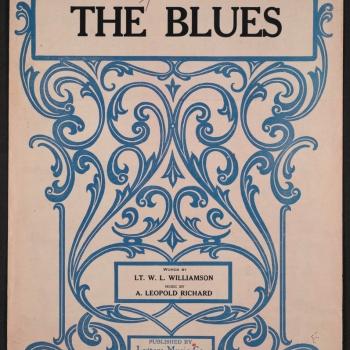It is all simultaneously moving and grim; the piece closes with Petersen talking about moving on with his life; although he clearly loves Jan Chorlton, and will forever see to her well-being, he reveals that he is now in a relationship with a widow; they live together, and they both love Jan in what one of them calls "this very peculiar new American family." Petersen and his new love challenge anyone to gainsay them, who has not walked in their shoes.
"I vowed," ends Petersen, "that Jan's life would not be lost in the wasteland of Alzheimer's. So I've written Jan's Story: Love Lost to the Long Goodbye of Alzheimer's (Behler). It is also a forewarning, because millions more may soon be on my same sad journey, as Alzheimer's triples by mid-century.
The Jan I knew is all but gone to me now, but I remember what she always taught me . . . to embrace life.
And to do that, I must go on."
Many will cheer Petersen for the way he has dealt with his pain and loss. A minority will be troubled by it. After seeing the report, one friend -- a man who cries at baseball games -- sent this email:
"He had me right up to the end, and then when he threw in that curve ball, I almost physically recoiled. He lost me. Sorry, but you just don't do that. What part of "in sickness and in health" did he miss? . . . It's heartbreaking, and yes we can never really know what he's going through until we've walked in his shoes, but it still strikes me as disloyal and self-serving. It almost seems like he's been able to conveniently have her warehoused to let someone else worry about her so he can live the life he wants.
I know that's harsh, and I'm sure he's hurting over all this. But it is what it is.
That is harsh, indeed. But I understood where my friend was coming from because my reaction had been almost identical -- the recoiling, and the question, "Whatever happened to faithfully playing the hand you've been dealt?"
Immediately, I felt ashamed for asking it and all sorts of conflicted questions tumbled through my head: Didn't I feel bad for Petersen? Of course I did. Didn't I believe he was entitled to happiness in his life? Naturally, I did. Didn't this seem like making the best of a very bad situation? Well, yes, on one hand, but on the other...
On the other hand, I felt manipulated, and spiritually cheated; my emotions had been played like harp strings -- these beautiful people! These sad situations! The hopelessness of the illness, and all of that love! There was just too much love in the piece, it had to go somewhere, and if I was not enthralled with it, there was something wrong with me, with my reasoning, with my heart.
But there is nothing wrong with my heart, and I will dare to wrest it back from the machinations of image and mood and sentiment, in order to ask, "What is Petersen doing with this piece? Where is this heading?"
It is likely that Petersen's revelations will be universally applauded. He will be heralded as a sort of liberator of love, a man willing to risk public condemnation in order to free other similarly-suffering spouses, and to encourage them to follow his lead. Their spouses, after all, are "gone," even as they live, and Love always wants the happiness of the other, so wouldn't the Alzheimer's-afflicted want their partners to "move on," and find other loves, and other lives?
That is a pleasant thought, but we can only pretend to know what the indisposed spouses would "want," and that makes it all-too-easy to believe that what they would want is precisely whatever it is we have chosen to do, be that beginning a new relationship, or visiting them only once a month, or finding a "compassionate" way to shorten their ordeal, since "they're gone," anyway.
It is precisely for situations like these that marriage vows were designed. "For better, for worse, for richer, for poorer, in sickness and in health, together or apart." Love, which is limitless, is supposed to be strong enough-even if we do not think we are-to survive all of these difficulties.
This is not an idea that is exclusive to churches and people of faith; the vows are common to secularists, as well, and societies have been built upon them for millennia. Why, suddenly, do they no longer "work?" Is it a generational thing? Are the same baby boomers who would not submit to military conscription or unplanned parenthood, or to anything they did not explicitly want to do, now refusing to embrace the difficult, shattering work of suffering for love? Has the church done such a poor job of demonstrating the efficacy of such surrender that there is simply no capacity for it left, in the post-modern world?
A neighbor of mine has worked as a therapist for Alzheimer's patients, both high-functioning and low, for nearly 20 years. My children and I have occasionally volunteered at her facility. I was helping out one day when she said so-long to a cheerful-looking man in his sixties, who was taking his leave, after a visit.




